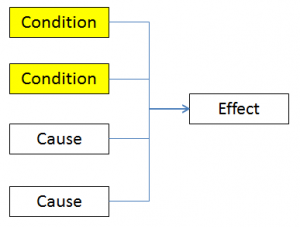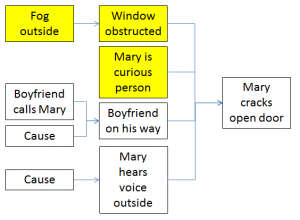Today I calculated I’d blog about daily word counts. For you writers and would-be writers, do you count your word production and log it? If you do, are you finding it helps you or not?
Here’s my take. I used to do that but no longer do so. I think keeping a daily log of writing progress is very valuable in the beginning to establish the habit of writing. It may even help you get through a slump period, the so-called “writer’s block.” Once the writing habit is established, such logging may no longer be necessary.
What I’m talking about is the idea of keeping a log of how many words you write each day. If you write on a computer with a word processor, it’s pretty easy using the software’s own word count feature. If you write some other way, you might have to count by hand. You’ll have to figure out how to count words on the days you’re editing previously written text, as opposed to creating new text. I tracked those distinct acts separately, since editing previously written text yielded much higher daily word production. Once you get the log going, you can find out what your daily average is over time and even set goals.
Why would anyone do this? There’s a sort of magic in measuring your progress with numbers. You will find yourself feeling guilty on those days when you have to log a zero because you did no writing. You’ll have excuses for that, of course, but they won’t change the fact that your log still shows a fat zero for that unproductive day. On days where you’re feeling tired and teetering on the edge about whether you want to try to write a bit or not, the knowledge of your numeric log looming before you may spur you to write when you otherwise wouldn’t. In some mysterious way the habit of logging progress can actually prod you to into the habit of writing more.
It turns out your attitude toward these sort of personal metrics comes into play. It’s vitally important that “zero days” not get you depressed. The point of the log is to promote progress, not incite negative thoughts. If the very idea of seeing a zero besides a date will cause you to think you’re not cut out for writing or might make you want to give it up, then perhaps the idea of daily word counts would be adding too much stress for you. This thing only works with those for whom occasional failure is an inspiration to greater achievement next time.
You may be thinking that counting words is stupid because not all words are equal. Isn’t the point to learn to write well, you ask, not to simply write a lot? Well, yes and no. Of course the point is to learn to write well. The few words of a brilliant short story by a talented author do far outweigh several trashy novels written by a bungling hack, even though the word count is less. But in the first place quantity has its own kind of quality in writing, in the sense that practice makes perfect. The practice comes from writing a lot, and that practice can be roughly measured by word counting. In the second place, it’s very hard to measure the quality of prose. There is no menu item or icon in your word processor for that. Yet. (Software programmers, take note: the world screams for exactly such a feature!)
I’m counting on you to leave a comment for me about whether you log your word counts daily and whether you find it a helpful exercise or not. Including the end of this sentence, that’s 627 words written by…
Poseidon’s Scribe


